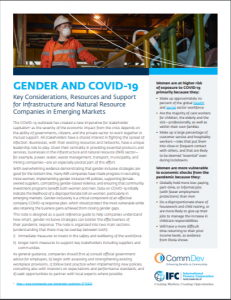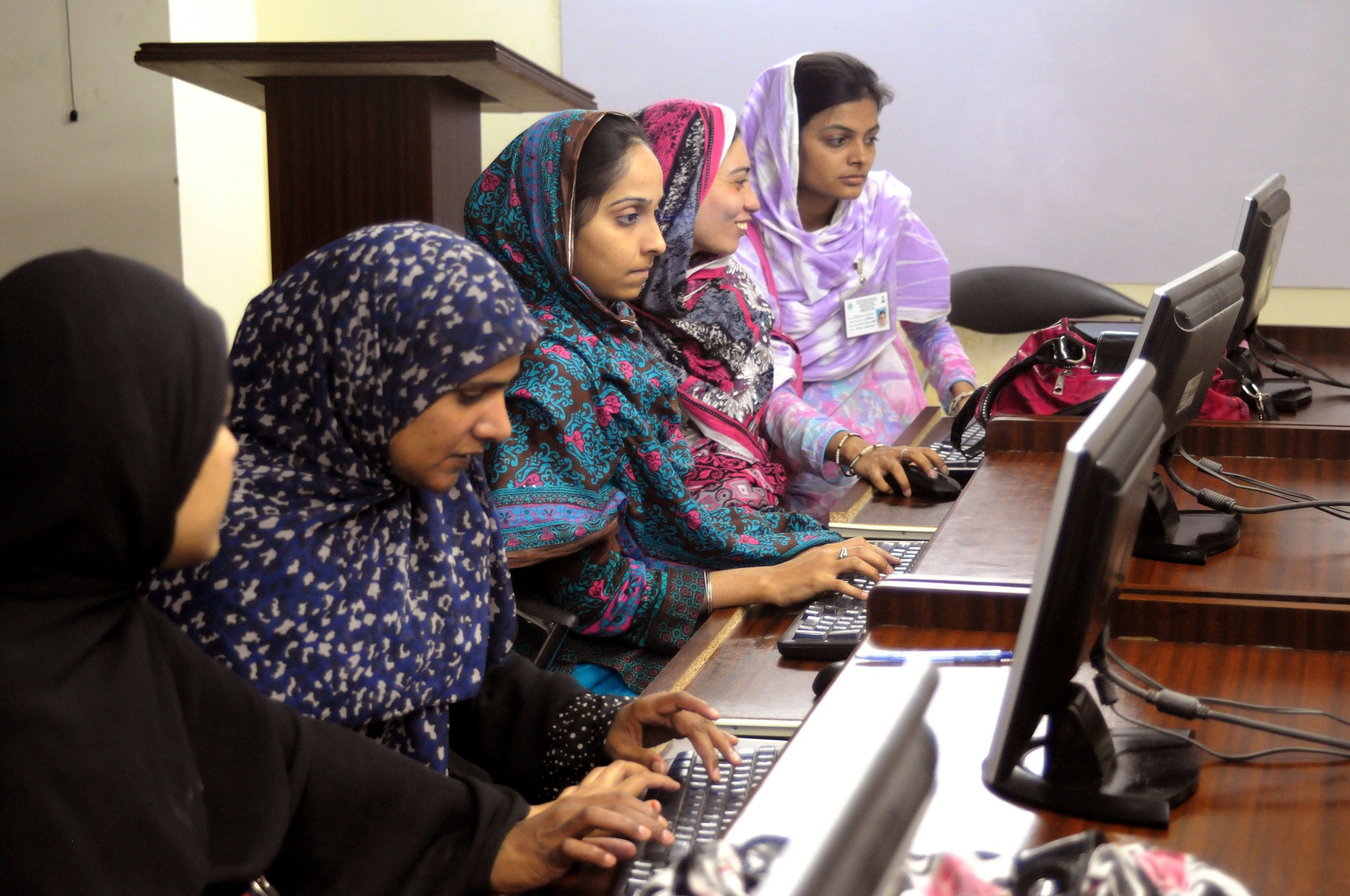Blog
May 4, 2020

This blog was written by Adriana Eftimie, Jen Scott, and Sherry Goldberg.
“We’re all in this together” has become a familiar refrain since the outbreak of the COVID-19 pandemic. While the virus might not discriminate at a cellular level, the outbreak has magnified existing fault lines of poverty and inequality. Data suggests a disproportionately high toll on women in emerging markets due to their greater economic vulnerability, higher burden of domestic care work, the fact that they constitute 70% of frontline health workers, the recorded spike in gender-based violence during the pandemic, reductions of essential health and education services, and a significant gender gap in accessing key public health information.
As companies formulate COVID-19 response plans, those which address gender-specific vulnerabilities will amplify their effectiveness. Ultimately, the pandemic reinforces the case for stakeholder capitalism: when business acts in the interests of society, we realize mutual gains, increase shared value, and bolster resilience in ways that were not previously possible.
Business and Women Can Benefit from a Gender-Inclusive Pandemic Response
Following government directives and taking decisive, gender-inclusive measures to protect safety and wellbeing is essential to minimize disruption and profit losses. Company COVID-19 plans cover two main dimensions, with some overlap between them: immediate needs for the workforce and operations, and extended needs in the wider network of suppliers, customers, and the local community.
Immediate Response: Workforce and Operations
The Infrastructure and Natural Resource (INR) sector includes many essential businesses that will continue to operate during shutdowns. If workers are still required to come to site, companies can implement distancing measures where possible. Adaptions to site operations are most effective if they are gender inclusive. For example, provision of appropriate personal protective equipment (PPE) (including in women’s sizes); ensuring hand-washing and sanitary facilities for both women and men; supporting the needs of lactating mothers; providing sanitary employee transport to minimize infection risks and keep female employees safe; offering free testing to male and female employees; and supporting access to medical care for those who are sick, as well as for ongoing maternal and reproductive health needs.
Gender-inclusive human resources policies are a cost-effective means of ensuring the wellbeing of employees during the pandemic. Supporting childcare and remote and flexible work schedules enable both male and female workers to better balance domestic responsibilities with their jobs. Many INR companies have worked hard to recruit more talented women, given overwhelming evidence that gender diversity is good for business. Embracing these measures will increase likelihood of retention as pressures on families mount during the pandemic and beyond.
Extended Response: COVID-19 and the wider group of stakeholders
Companies can also leverage gender-smart strategies to lower the costs of procuring essential items in their supply chain, including PPE. Local businesses may have the capability to manufacture masks or provide soap and disinfectant for company premises or for distribution in nearby communities. Many women-owned businesses or cooperatives in emerging markets are already engaged in, for example, saponification, sewing and garment manufacture. Such local groups often need help procuring the essential inputs to provide low-cost, high quality outputs. INR companies can help facilitate these transactions, and ultimately benefit from being able to purchase needed supplies at competitive prices, avoid global supply chain price gouging, and contribute to rebuilding local economic resilience.
Even with severe capital constraints, companies can leverage existing networks and resources to support the pandemic response in their communities. One key area is risk communication: companies can share inclusive public health messaging that is aligned with government guidance and that recognizes different roles and risk factors for men and women. Company supply chains and logistics capabilities can be a valuable resource for government and NGO partners to distribute needed medical and food supplies in impacted communities, where women typically bear the brunt of shortages. Community engagement teams can help gather gender-disaggregated data on impacts. Finally, existing company-community investment programs can be refocused to address the needs and challenges of vulnerable women and men post-pandemic.
With business facing increased financial pressures, it can be tempting to view gender inclusivity as a ‘nice to have’ set of activities. However, evidence suggests exactly the opposite. In hard times, companies must leverage every source of added value they can identify. How companies make decisions before, during, and after this crisis will determine how the COVID-19 pandemic plays out in men’s and women’s lives, which in turn will determine the future of their business. COVID-19 is therefore an opportunity to embrace strengthening the kinds of best practices that create long-term, sustainable profitability.
We have created a quick reference guide for companies that lists smart, gender-inclusive strategies to help them optimize the effectiveness of their response. Another useful resource is IFC’s gender toolkit, ‘Unlocking Opportunities for Women and Business,’ a comprehensive step-by-step guide to mainstreaming gender equality within a company. Download it for free in English, Spanish, or French.
We want to hear from you
What strategies are working for your company (or have worked during previous emergencies)? What questions do you have? What forms of support would help your company minimize gender inequality and ensure that both employees and communities are as resilient as possible during–and after–the COVID-19 pandemic? Please share your successes and challenges by writing to us at commdev@ifc.org. We’re all in this together.
Click below for the quick reference guide: Gender and COVID-19: Key Considerations, Resources and Support for Infrastructure and Natural Resource Companies in Emerging Markets:



